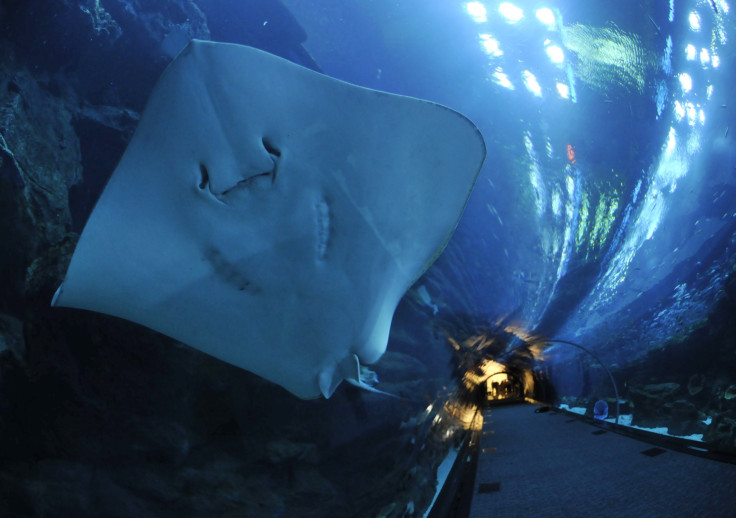StingRay Phone Surveillance Technology Gets New Scrutiny As Senator Asks Why Police Keep It Secret

For more than a decade U.S. police agencies have quietly been using powerful surveillance technology that makes it possible for them to drive through a neighborhood and sweep up information about every cell phone they pass. Use of the device, known as the StingRay, has been almost totally hidden from judges, attorneys and the American public. Until now.
The Harris Corporation, which manufactures StingRays, will only sell them to state police if they agree to sign a non-disclosure agreement with the FBI. But that strategy of secrecy is now at risk, though, after Sen. Bill Nelson, D-Fla., sent a letter to the Federal Communications Commission Tuesday asking for an explanation about secrecy around the program.
The FCC has yet to respond to Nelson’s letter, but experts already agree that the Florida senator's interest could shine a brighter light on the controversial technology.
“When judges find out they’ve been approving these things without knowing exactly what they’re approving they’re going to get really ticked off,” said Hanni Fakhoury, a senior staff attorney at the Electronic Frontier Foundation. “That’s not how democracy works. No one is saying, ‘You can’t have this.’ They can have their toy, we just want to know how it works.”
The StingRay itself is a mobile luggage-sized metal box that mimics a cell tower signal, tricking cell phones into connecting with it instead of the automatic Verizon or AT&T towers. That connection makes it possible for police to not only monitor conversations, but also track phone owners’ movements, deny services to phones and extract other sensitive without a user’s knowledge.
The FBI and Department of Homeland Security have made it possible for federal, state and local police agencies to obtain StingRays under the pretense that this kind of advanced technology is necessary to prevent acts of terrorism. Instead, arrest records have consistently shown Stingrays are being used to investigate violent crimes right on down to minor drug sales and to see who hangs up after dialing 911.
Honesty would not only ease the authorization process, experts says, it’d also define the parameters of when officers can actually use StingRays. Putting clear rules in place would calm public nerves and also protect individual police officers who might be unwittingly overstepping their bounds.
“Police shouldn’t have to figure out on their own if they have sanctions to do something,” said Eugene O’Donnell a former New York City prosecutor who now teaches at John Jay College of Criminal Justice, adding that police feel pressure from the public to do the most they can to solve crimes. “When technology is available, how can you not use it if you think there’s an emergency?”
The argument that using a StingRay constitutes an unreasonable search would have less power if police used them to investigate violent crimes rather than stolen cell phones, especially when polls have already shown Americans aren’t overly concerned with trading privacy for security.
“If the secrecy is more important than the use of the device then it just shows that the secrecy is a big sham. To have secrecy for the sake of secrecy is pointless,” Fakhoury said.
StingRays were the subject of a hearing in Santa Clara, California Tuesday, when the county approved the sheriff’s department request to accept a $500,000 grant from the Department of Homeland Security to purchase the surveillance technology. The police are required to work with the county to craft a policy on how and when the Stingray is used, a stipulation that – however minor – wasn’t put in place before many other counties purchased the Stingray from Harris.
Nerves are especially raw after the Ferguson, Missouri protests made it clear that even the smallest police departments are using military equipment meant for the warzone in American neighborhoods. Frustration with police techniques was a major topic of conversation through the latter half of 2014. Fakhoury suggested the Stingray debate is an opportunity for police to rectify that mistrust that’s only grown since 9/11 wrote a blank check for U.S. law enforcement.
“By letting law enforcement do what they want for ten years we let law enforcement get really entrenched,” he said. “Now people are saying ‘Hey wait a minute.’ This is why we have to have the debate beforehand.”
© Copyright IBTimes 2024. All rights reserved.





















